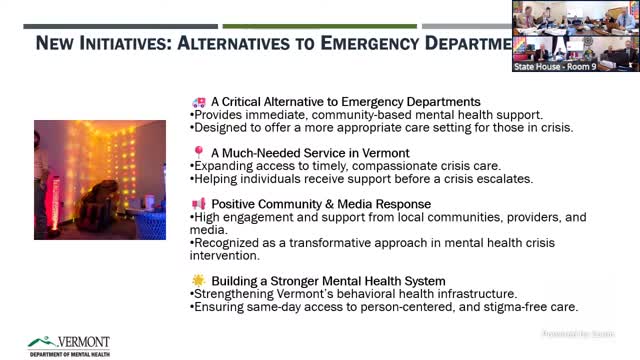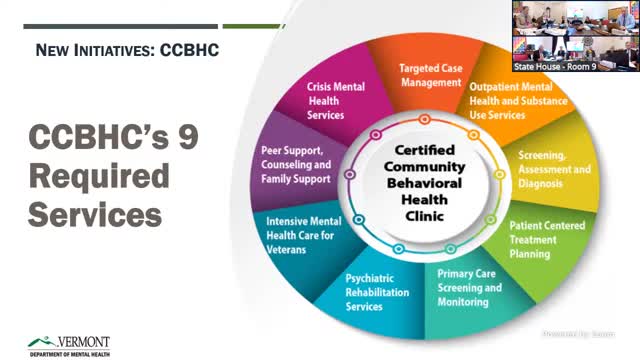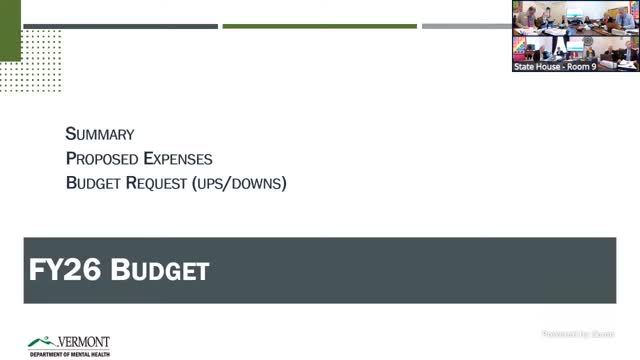Article not found
This article is no longer available. But don't worry—we've gathered other articles that discuss the same topic.

Department of Mental Health expands alternatives to emergency departments; seeks sustainable funding as pilot grants expire

Vermont picks two agencies to begin CCBHC certification under federal demonstration

